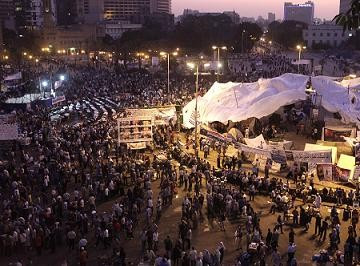Women After Arab Spring: 'Rape, Like Bombs, Used as War Weapon'

Rape is being used as a weapon of war in the same way bombs are, a panel of experts have said.
The declaration was made at a conference about the rising violence against women in the aftermath of the 2011 Arab Spring revolution held by Chatham House, an independent policy institute which analyses international issues.
During the talk held as part of the Global Summit to End Sexual Violence in Conflict in London, the experts highlighted the reasons for the increasing violence in the Middle East after the uprising.
Syria: Rape, like bombs, is used as war weapon
Dr Fida Shafi, Senior Fellow at Chatham House and Gender Equity Program Director at CARE West Bank and Gaza Strip, highlighted the situation of Syrian women refugees.
While she interviewed Syrian refugees in Jordan, Dr Shafi spoke with victims of rape.
"One Syrian woman I interview told me: 'I'd rather be dead than raped,'" Dr Shafi said.
"In every culture rape is a stigma.
"During and post the Arab Spring rape, like bombs, has been used as a weapon of war."
In order to escape the dangers of rape, Syrian women flee the country and reach Jordan, where they are equally at risk of sexual harassment in the refugee camps.
"Rape is the reason for Syrian women to flee the country," Dr Shafi said.
In order to avoid rape and its resulting stigmatisation, many families force their daughters to marry at a very young age.
"Families are willing to offer their daughters as spouses to anybody, any time, at any price.
"Child marriage is related to the social stigma of rape and to the way women and men are raised. Women do not have control over their body, men feel entitled over their bodies," Dr Shafi stated.
Egypt: Eight out ten of women are harassed daily
"Egypt is ranked the worst country around the world in terms of violence on women. Eight out ten of women are harassed in Egypt every day," Egyptian Journalist and Commentator Dr Nervana Mahmood said.
According to Mahmood, violence against women in Egypt is nothing new and the Arab Spring only exacerbated it.
"Violence in Egypt is chronic and endemic.
"There is a tendency to blame women in Egypt: there is a tendency to believe that the more dressed women are, the less they are subjected to violence," she continued. "However, regardless the dress code, women are harassed and assaulted in Egypt every day.
"What we witness in the Middle East is the tribalisation of society: Every tribe thinks they represent the nation and their women are the best women."
According to Mahmood, after the Arab Spring women are being targeted even more, especially if they participate in rallies on the streets.
"Sadly what the revolution has done was to increase the violence in Egypt. The ousting of Mubarak brought more violence against women.
"My country is at risk to be called [the] country of rapists and that must not happen. We have to change mentality to tackle the problem. We need to work with religious scholars.
"We need international community to support us at a grassroots level, with no political agenda."
Speaking about the new anti-harassment decree approved in Egypt - which sees punishments from six months to five years in prison with harsher sentences for offenders who hold a position of power over their victims - Mahmood said:
"The law is actually very good. It's the first of its kind and it specifies the degree of the violence. The problem of the law is its implementation.
"To bring people to justice and give them a fair trial is the challenge," she continued. "There are reports of police attacking women, it is important that people understand that law must be applied to everybody.
"Unless we change the culture [in Egypt], the law will not be taken seriously."
© Copyright IBTimes 2025. All rights reserved.






















